Business of Books in Literature Festivals
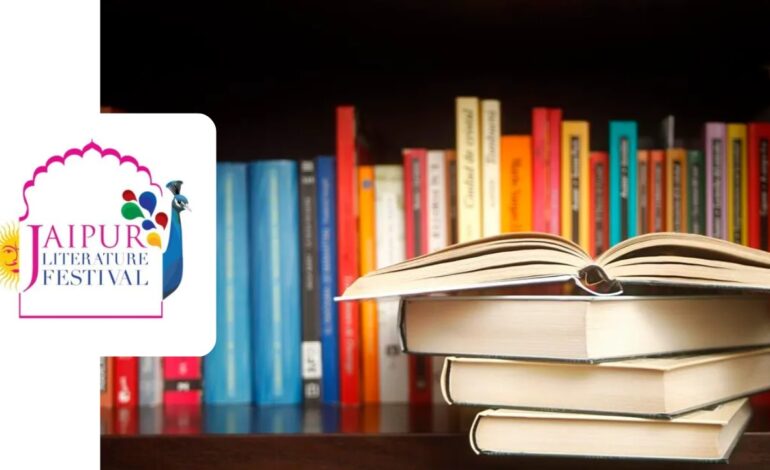
Apart from almost everything under the sun, the recently concluded Jaipur Literature Festival (JLF) discussed books too! By books I mean the business of book publishing in India. It may sound mundane in the environs of heady and heated debates and discussions about the world of letters but literature festivals are about books as business and industry and not just about literature in the pure sense.
This aspect has greater significance in relation to the JLF as many of the books and the authors discussed in its sessions did not strictly belong to literature— that is, fiction, poetry, plays, prose, literary criticism et al. It dealt with political writing, biographies, history books, science, yoga and spirituality. There were also children’s books which may not necessarily be children’s literature and many other varieties of books. In fact, JLF 2025 had its keynote delivered by eminent scientist and Nobel laureate Venki Ramakrishnan. And again, the closing debate, as it had always been, was on a burning topic of the day—this time it was on, “Pacifism is for losers”, moderated by columnist Vir Sanghvi.
So, in a nutshell, literature festivals are festivals of books and ideas. Literature lovers are essentially book lovers and bibliophiles, and this time as well, one came across publishers who expressed concern over the growing trend of e-books and online sale of books. JLF allots a specific venue, Jaipur Book Mark, for the book publishing industry. The wall there carries the matter of fact slogan, “Where books mean business”. This time too book publishers and festival organizers from India and abroad gathered at regular intervals at this venue.
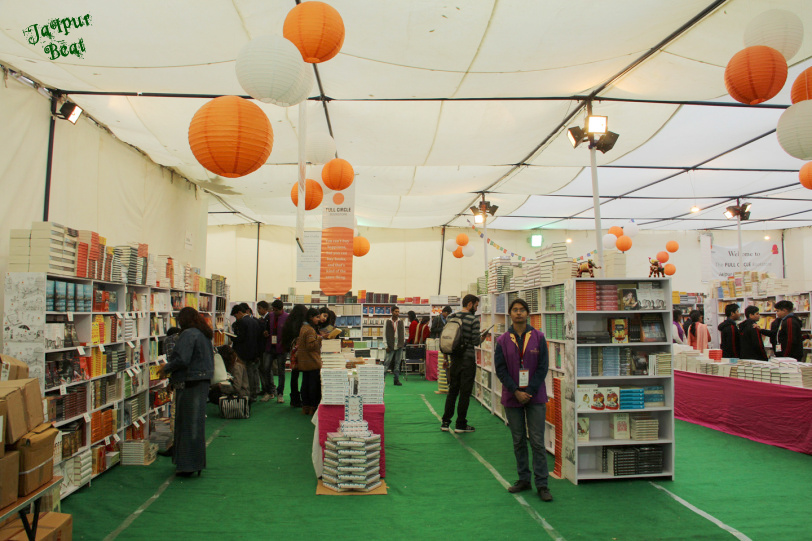
The editors and publishers at JLF appeared to be happy about the gaining vibrancy in the publishing sector though the publishers of Hindi books were guarded in their optimism. In contrast, those from the south of the Vindhyas as well as from Maharashtra talked about growing buoyancy in the sector. At the “Editors roundtable” in which Amrita Talwar, Chirag Thakkar, Elizabeth Kuruvilla, Karthika VK, Manoj Satti, Moutushi Mukherjee, Sushant Jha and Udayan Mishra expressed their views talking to Arunava Sinha, an improvement in book sales was acknowledged though it was not yet comparable to that in Europe or America.
India, ranked the six largest in the world in book publishing, has a vibrant book industry. The country has over 9,000 publishers and 21,000 retailers. Figures available indicate that the number of books published in India per one lakh was 6.3—a measly figure when compared to 212 books per lakh population in the UK. But then in the UK, all the books published there are not meant for reading there itself as that country is a major book exporter.
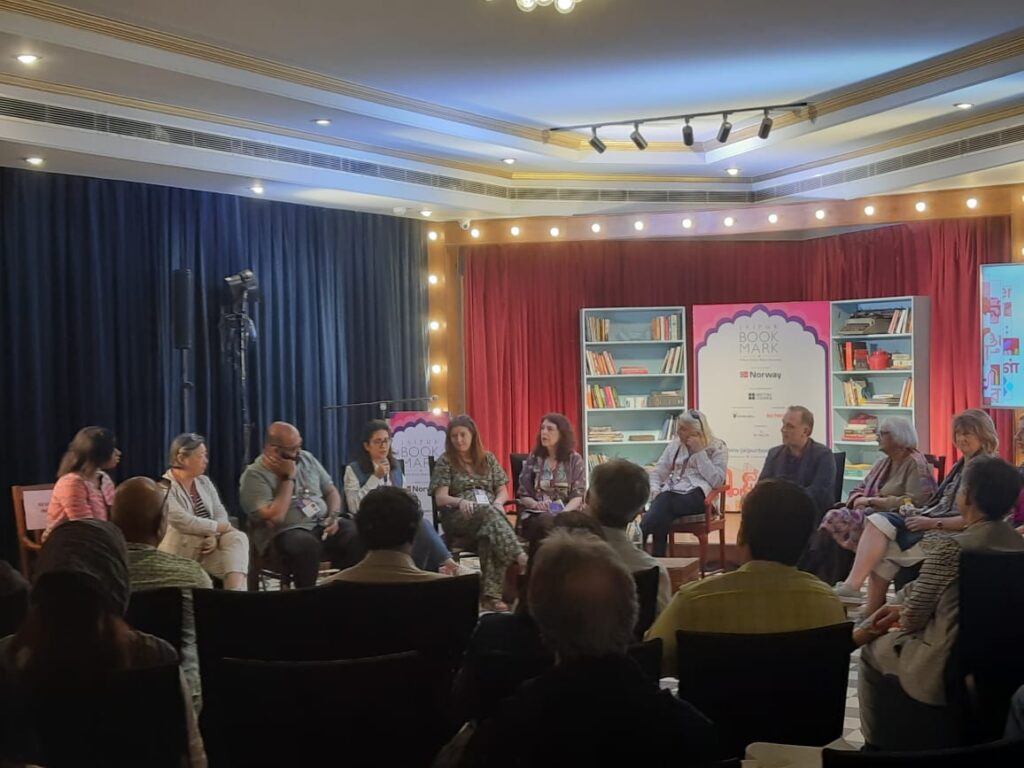
It is to be noted that in this regard, India too is not doing badly. In 2023 India exported books and publications worth 382 million US dollars. “Publishing in India is a story of perseverance,” said Aditi Maheshwari-Goyal, CEO of the leading Hindi publishing house, Vani Prakashan. Increasing paper cost was one of the challenges for the Indian publisher, she said.
This issue was a matter of intense pondering among the editors in relation to the domestic market. Are we publishing too many books? This self doubt is also the result of the fact that in India, on an average, an individual reads 4-5 books a year while it is between 15 to 20 books in the West. “In our market, only the best-seller books bring money”, one participant editor observed. Then there are neglected genres like plays and poetry. The editors also did some introspection asking themselves whether they were influenced only by sales prospects while choosing manuscripts.

The disappearance of the bookstalls from towns and cities had also been a topic of discussion for some time. But the JLF gathering noted this time that there were many towns in India now without even a single bookstall. At the same time, there had been a revival of bookstalls in some areas but the base had shrunken so thin that the growth made only a little impact. The editors also fretted over the absence of informed staff in the bookstalls who could explain the nature and content of the books.”The staff is not aware of what they are selling”, it was pointed out.
“Bookstalls should have something unique about them, a USP. Otherwise the buyers can buy also from Amazon or Flipkart,” it was observed. The bookstalls should also make good use of available technology to improve sales and attract more people to the shops. They should make use of social media to address the target audience. “Offline selling is still the best way,” asserted Vishal Soni, a leading publisher of Marathi books. Appearances make a big difference. The title, cover and size of the book affected the sales, he noted. Soni was of the view that even in the case of translations the ‘right’ kind of titles was crucial for a positive buyer response.
Over a period of time the JLF, which had its 18th edition this time, has been losing its regional representation as festivals have mushroomed all over India. New festivals have come up on the mountains and in the valleys and even on the seashore. The geographical locations have also been touted at many of these festivals as USPs.While regional literature was not a big presence at JLF this time too, the current edition had a good presence of publishers from Hindi and regional languages. In a session conducted by Aditi Maheshwari-Goyal, publishers of Marathi, Malayalam, Tamil and Kannada came alive with their observations and suggestions.
Govind Deecee, commissioning editor of DC Books, Harsha Bhatkal of Popular Prakashan, Jai Prakash Pandey, a leading promoter of books, Jeeva Karikalan of Tamil publishing house Yaavarum, Kannan Sundaram, publisher of Kalachuvadu, Nivedita Louis, co-founder, Her Stories Foundation, Vasudhenra, Kannada author and publisher, were the representatives from south Indian languages besides Vishal Soni, CEO of Vishwakarma which publishes books in Marathi and English.
“Lot of experimentation is taking place with genres in the Malayalam book publishing,” Govind Deecee observed. “Novels are the most popular genre in the Malayalam market,” Govind, whose DC Books is a co-promoter of the popular Kerala Literature Festival hosted in Kozhikode, pointed out. This may not be the case in English or in all other Indian languages. Many publishers here told me that non-fiction is doing better than fiction now: This was from Jeeva Karikalan. Yaavarum, his publication house, which promotes promising young writers, has been collaborating with affiliates in Malaysia, Singapore and Sri Lanka.
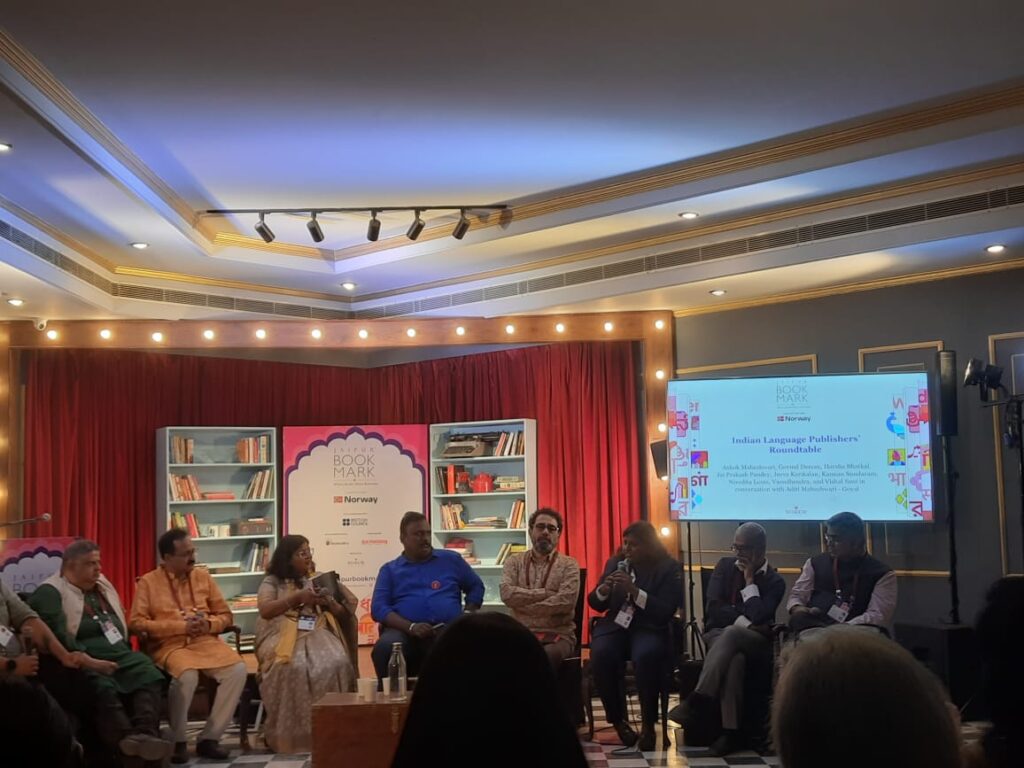
The Indian language publishers, of late, have been experimenting with graphic novels. Another recent experiment which the rest of the publishing sector took note of was a Hindi book from Harper Collins written in Roman script. Nivedita Louis said her publishing house had experimented with varying cover prices for the same book. “We have three versions of a book priced Rs.300, Rs.100 and Rs.50,” she informed.
“It is heartening to know that a lot of work is being done in other Indian languages. The new publishers are very energetic,” said Ashok Maheshwari, managing director of the leading Hindi publishing house, Raj Kamal Prakashan. Much more could be done by the way of translations, he felt. “There are 12 big languages in India with a sizable publishing market. Taken individually, the size of publications in each language may be bigger than those in the languages of many individual countries. Each Indian language publisher should try to have books translated from other languages,” he suggested. Maheshwari rued the fact that when the writers and translators were feted and felicitated, the publishers, who take all the financial risk, were left out.
For more stories from Jaipur Literature Festival 2025, Click Here.


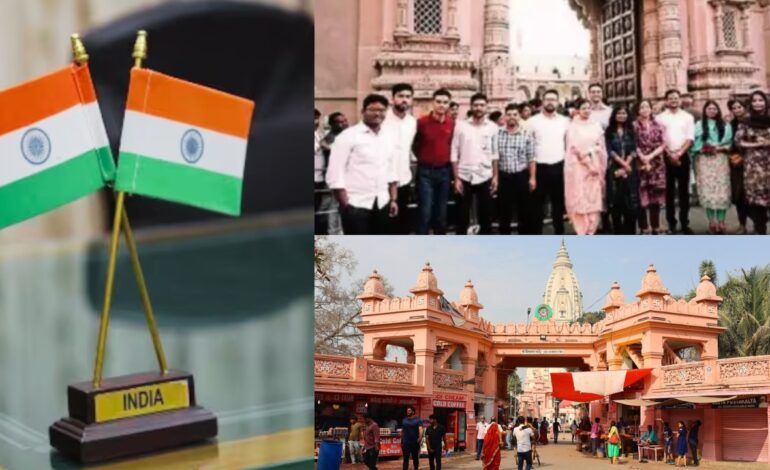
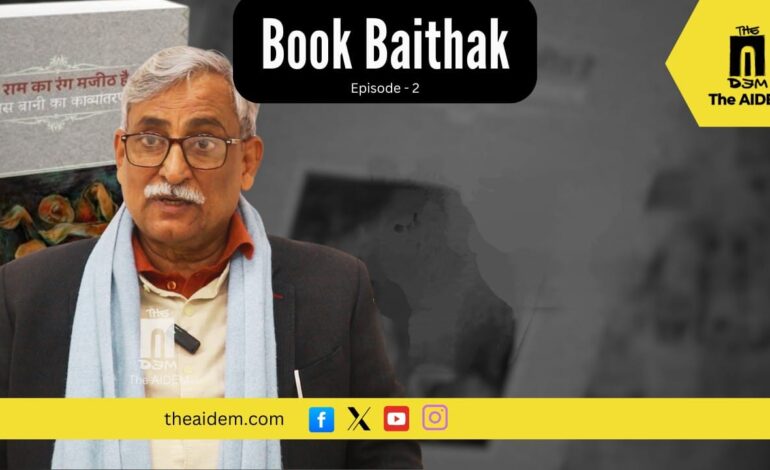

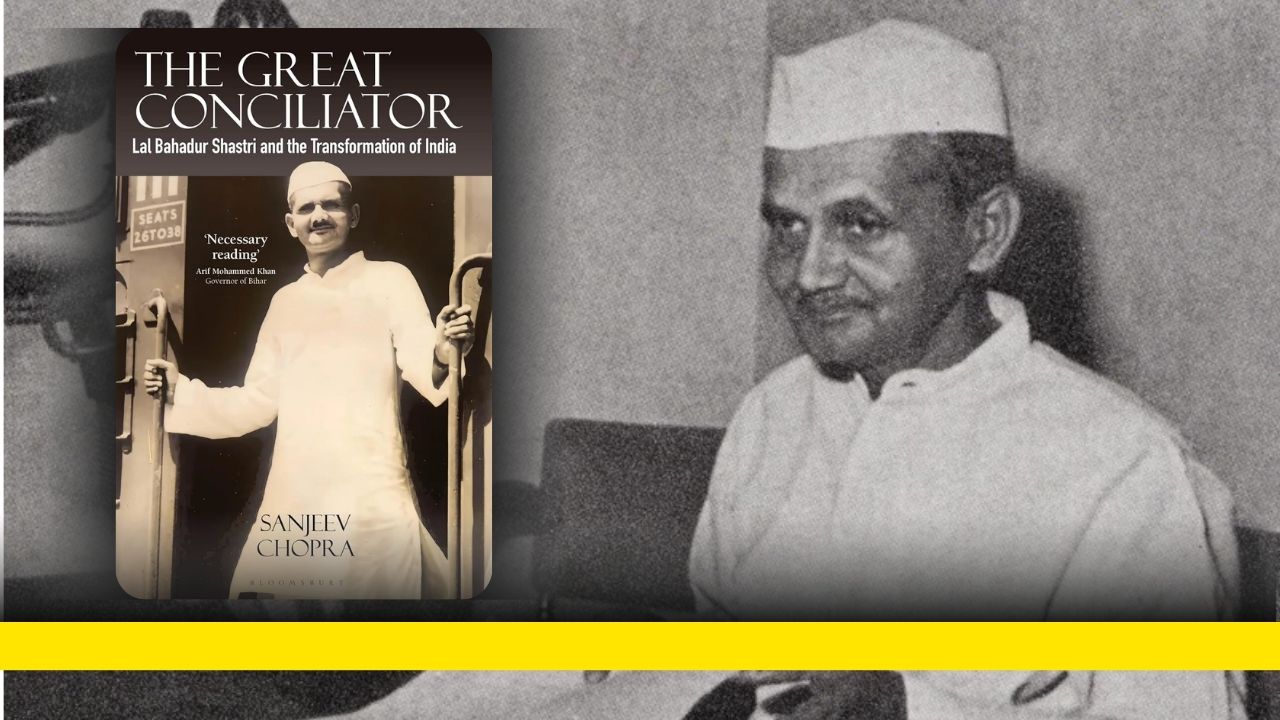
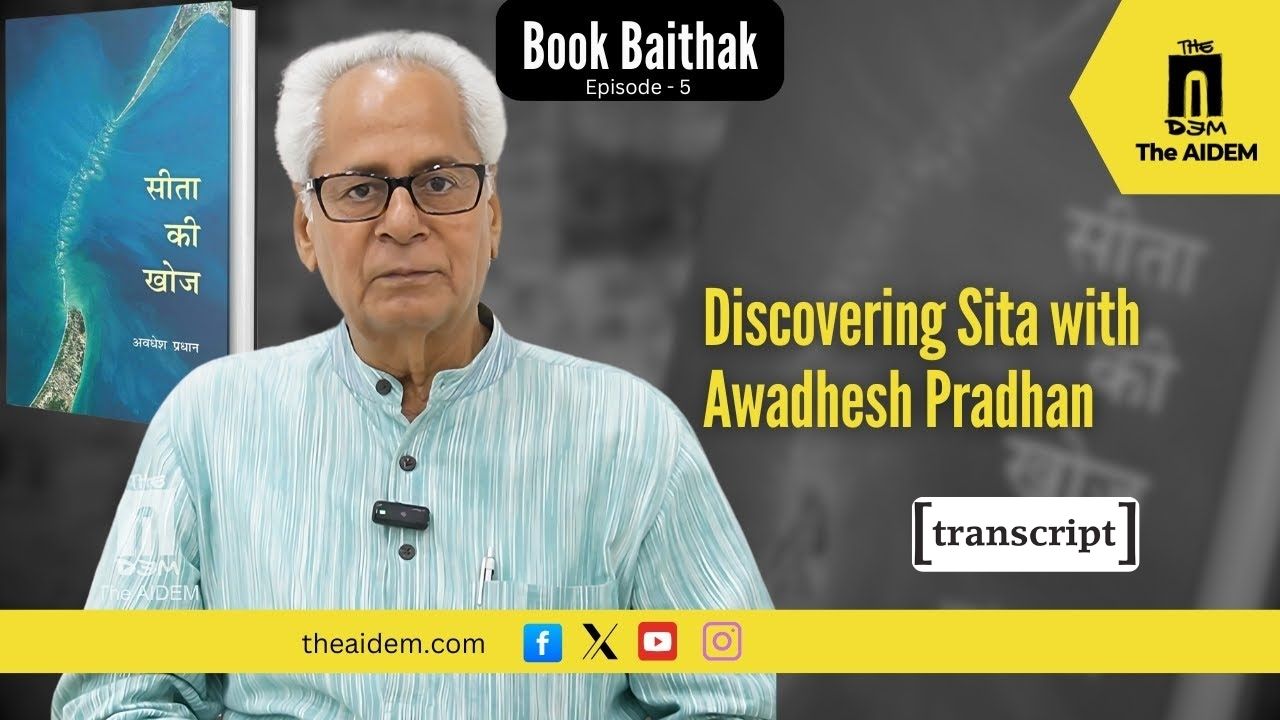
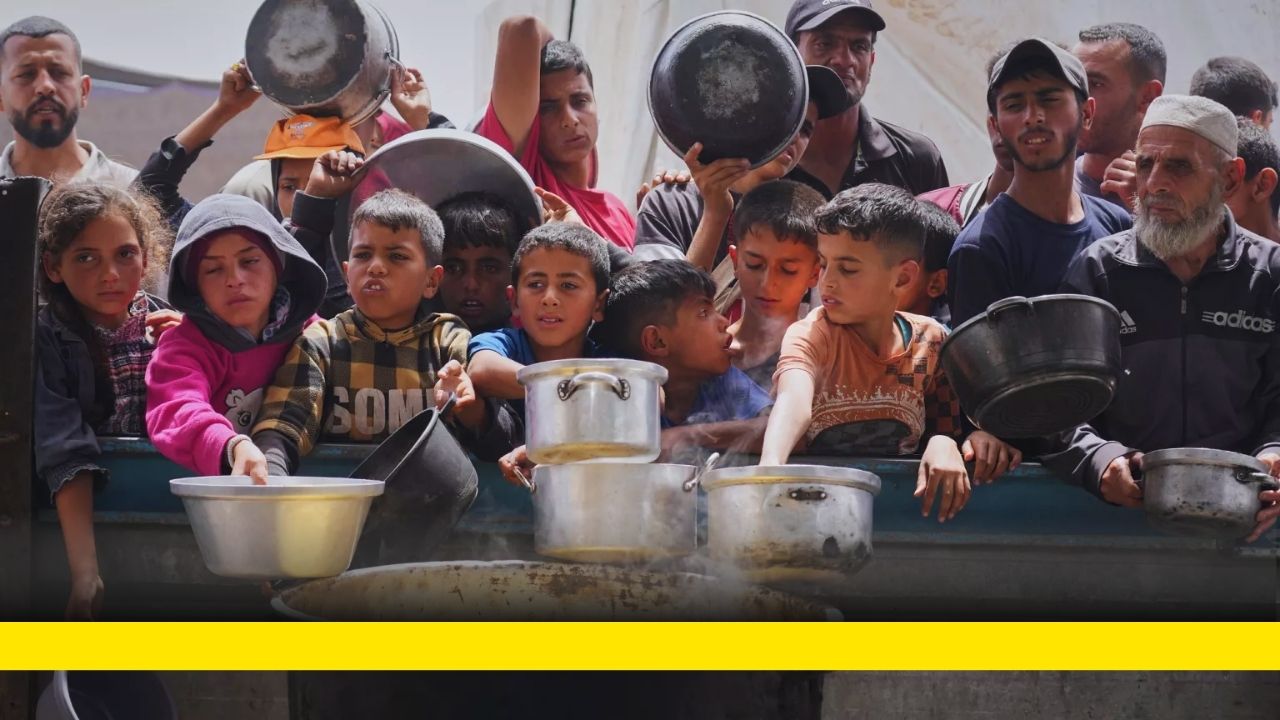




insightful, well done